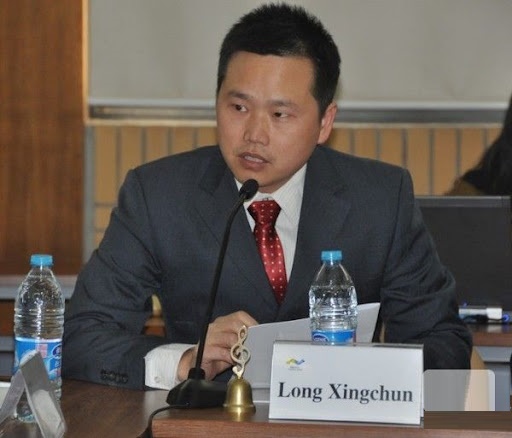CPEC should be extended to Afghanistan: Dr Long Xingchun

Islamabad: Dr Long Xingchun, President Chengdu Institute of World Affairs of China has said that China-Pakistan Economic Corridor (CPEC) should be extended to Afghanistan.
He was speaking at an international webinar organized by the Centre for Aerospace & Security Studies (CASS), Islamabad on ‘Future of Afghanistan and Regional Stability: Challenges, Opportunities & Way Forward’.
Dr Long Xingchun said that neighbouring countries have to play the leading role in rebuilding Afghanistan and Pakistan is the most important country in this regard.
“CPEC should be extended to Afghanistan and Gwadar port can play a big role in strengthening Afghan economy,” he added.
Air Marshal Farhat Hussain Khan (rests), Acting President of CASS and former Vice Chief of the Air Staff, in his address urged the world to give peace a chance in Afghanistan and the region, after trying everything else in the past.
He also stressed that the regional countries have a common interest in a peaceful and stable Afghanistan while regional connectivity projects such as CPEC could be the harbinger of economic well-being and prosperity for the whole region.
In his keynote address, Pakistani National Security Advisor Dr Moeed Yusuf warned that abandoning Afghanistan again by the international community would be a mistake.
Dr Moeed Yusuf maintained that the world needs to constructively engage Afghan Taliban in order to prevent governance collapse and avert another refugee crisis. He informed that Pakistan was coordinating with the world to have a stable and peaceful Afghanistan.
Dr Yusuf reminded said that Pakistan was the only country which bore the brunt of abandonment of Afghanistan and the subsequent War on Terror.
Russian geopolitical expert Leonid Savin said that the recent take-over by Afghan Taliban has changed the regional political dynamics and this will have an impact on global politics. He said Russia can recognize the new government if China recognizes it first.
Professor Dr Fazl-Ul-Hadi Wazeen of Salam University, Kabul insisted that the international community should not corner Afghanistan and give the new government a chance to rule while Afghan Taliban must also keep their promises, adopt a reconciliatory approach and refrain from the use of force.
Dr Syed Qandi Abbas of Quaid-e-Azam University pointed out that both Pakistan and Iran expect an inclusive permanent Afghan government in future. He said that the current interim government is not inclusive which has included only three non-Pushtun individuals, out of a total of 34 and Iran expects a greater accommodation of non-Pushtun people if a civil war is to be avoided in future in Afghanistan.
The webinar was moderated by Syed Muhammad Ali, Director Nuclear & Strategic Affairs, Centre for Aerospace & Security Studies.





